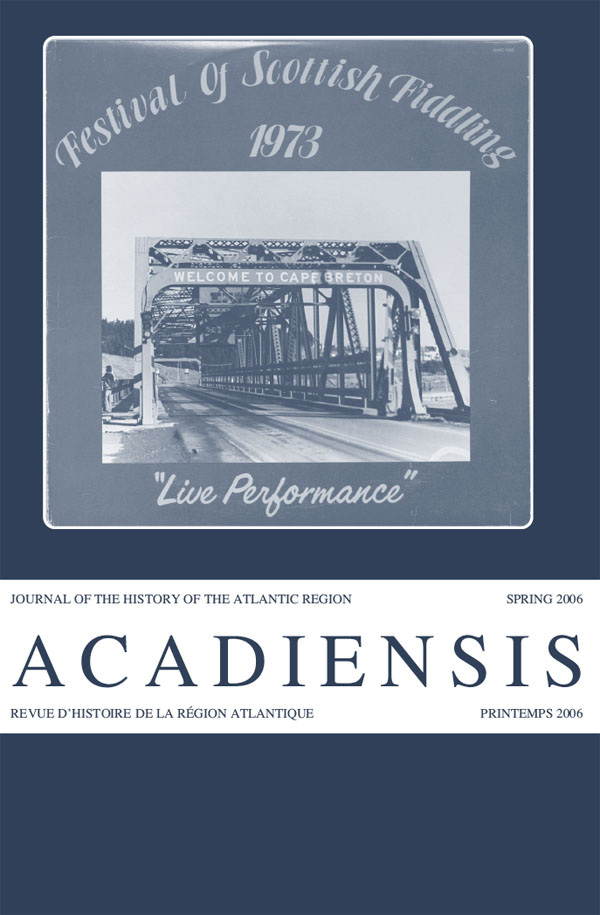Abstract
In 1972 the Canadian Broadcasting Corporation (CBC) aired a half-hour documentary that conveyed the message that traditional Scottish-style fiddle music in Cape Breton, Nova Scotia, was in decline and would soon die out. The film, Vanishing Cape Breton Fiddler, argued that modern music was more popular with the young generation of the 1960s and 1970s and that, as a result, transmission of the style and tunes handed down from 19th-century Scottish immigrants to Cape Breton would be broken. Following the broadcast, momentum gradually developed to counter the message in the documentary. The first Festival of Scottish Fiddling was held in July 1973, a Cape Breton Fiddling Association was established and opportunities to learn traditional music became more widely accessible to people of all ages, thus allowing the Cape Breton music tradition not only to survive but also to evolve in new and exciting ways. Resumé Un documentaire d'une demi-heure diffusé sur les ondes du réseau anglais de Radio-Canada en 1972 véhiculait le message selon lequel la musique traditionnelle écossaise des violoneux du Cap-Breton, en Nouvelle-Écosse, était en déclin et serait bientôt disparue. Le film Vanishing Cape Breton Fiddler (Disparition du violoneux du Cap-Breton) alléguait que la musique moderne était davantage populaire chez les jeunes des années 1960 et 1970 et que, par conséquent, la tradition de transmettre le style et les pièces de musique des immigrants écossais du 19e siècle aux générations suivantes de Cap-Bretonnais serait rompue. Après la diffusion du documentaire, un mouvement a progressivement pris de l'ampleur afin de contrer le message exprimé par ce documentaire. Le premier festival de violoneux écossais s'est tenu en juillet 1973, une association de violoneux du Cap-Breton a été mise sur pied et les occasions d'apprendre la musique traditionnelle sont devenues plus accessibles aux personnes de tous âges, ce qui a permis à la musique traditionnelle du Cap-Breton non seulement de survivre, mais aussi d'évoluer vers des formes nouvelles et intéressantes.Copyright for articles published in this journal is retained by the author(s), with Acadiensis being granted a non-exclusive licence to each and every right in the work throughout the world. After publication of the work, the author(s) shall have the right to self-archive the work and to reprint the work in whole or in part in books authored by or edited by the author(s) without the payment of any fee. In these other formats, however, the author or authors are required to acknowledge the original publication of the work in the pages of the journal. In the case of any requests to reprint the work, Acadiensis will require a standard permission fee -- to be divided equally between the journal and the author. In the event that such requests are received by the author(s), the author(s) shall direct such requests to the journal.

